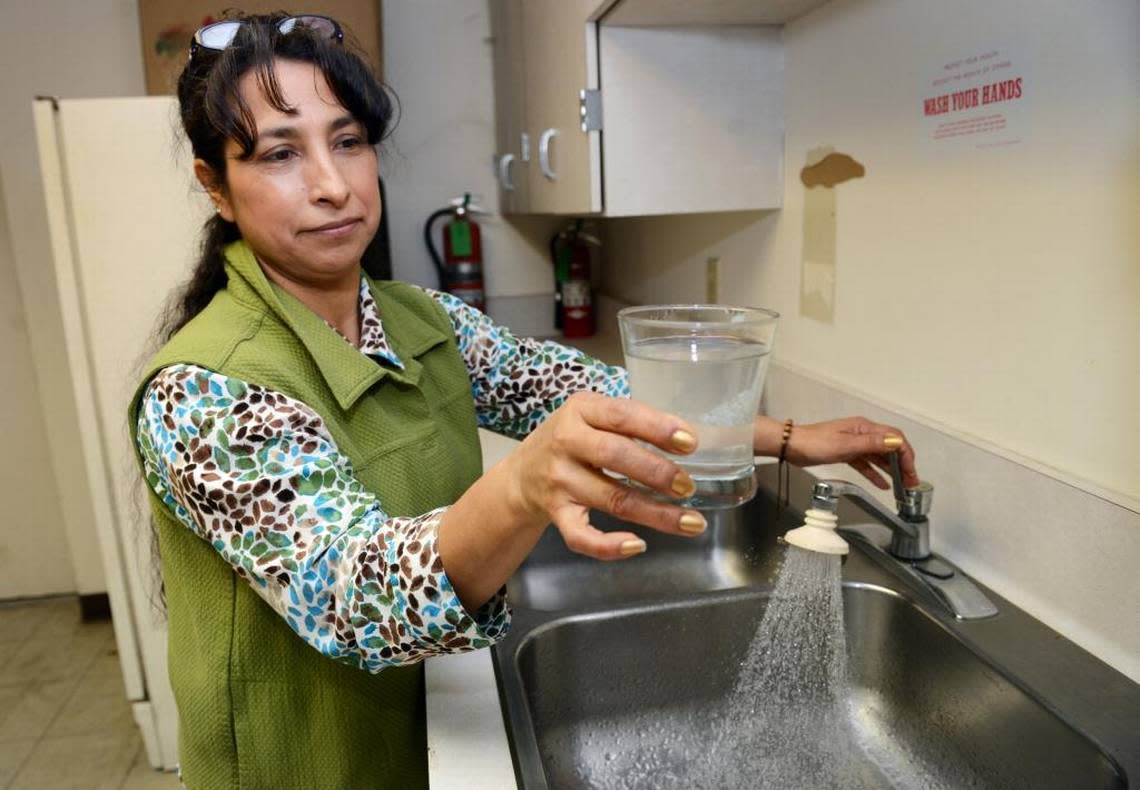Discrimination left rural towns in San Joaquin Valley with bad water. Help is on the way

Nearly 1 million Californians lack access to safe drinking water. This sobering statistic, tracked by the State Water Resources Control Board, drives those of us who work to fulfill the Human Right to Water every day. While it is critical that this problem is addressed urgently, it wasn’t created overnight, and solving it is anything but simple.
For decades, barriers to exclude communities from safe, affordable drinking water were built, rather than pipelines to connect them. Deliberate policy decisions, such as red-lining, withheld investment in water and sewer infrastructure in small, unincorporated communities, leaving the most vulnerable Californians dependent on unreliable water sources. Climate change, contamination and groundwater depletion have only compounded these issues.
Many communities, like East Orosi and Tooleville, have worked diligently to fix their drinking water problems, but they have still seen their systems fail. Tackling challenges like theirs requires system-level changes; often, the only viable, long-term solution is to connect to a neighboring larger community or city’s system, a process called “consolidation.” In recent years, the State Water Board has received new authorities and funding to help communities develop win-win solutions with their neighbors, like consolidation. When done right, consolidations provide the reliability and affordability necessary to create resilient water systems.
Through our Safe and Affordable Funding for Equity and Resilience (SAFER) drinking water program, established after the governor signed SB 200 in 2019, the State Water Board has helped 80 neighboring drinking water systems consolidate, with 210 additional projects underway. We also have invested $700 million in small, disadvantaged communities (nearly double than before the program), and accelerated projects in more than 300 others throughout the state. Now, more than 650,000 people in 120 communities with water systems that were failing have reliable access to safe, clean and affordable drinking water.
These accomplishments are not ours alone. Gov. Newsom’s decision to make safe drinking water a top priority, along with the Legislature’s passage of SB 200, has better enabled the State Water Board and partners to work together with communities toward fulfilling the Human Right to Water.
The SAFER program is in year three of a 10-year effort to ensure we provide interim drinking water access without losing sight of the need for long-term solutions. Despite our successes, a recent state audit called on us to decrease the time it takes to get funding out. The audit’s findings align with many of the process improvements we already had initiated, including streamlining funding approvals and increasing communication with applicants. However, we must point out that longer processing times are the direct result of our intentional, successful outreach to communities, not a lack of urgency. Over the past year we have received more than six times the applications we had seven years ago, and nearly tripled the funded projects we had before 2019.
It’s also important to keep in mind that, sometimes, what feels like a bureaucratic hoop in a funding process is an important safeguard. Take the cautionary example of Lanare. In 2007, the county funded a $1.3 million arsenic treatment plant without a financial feasibility study. The community couldn’t afford to operate the plant, went into debt, lost its water system, and residents went back to unsafe arsenic levels in their water. To achieve justice for residents, the State Water Board must ensure we are investing in projects that are resilient decades into the future, just as we work to get them in place faster.
We are steadfastly committed to addressing the wrongs that have been built into the very foundations of our water systems. All of us — local agencies, nonprofits, state and federal partners, and community members — share the responsibility to break down old barriers and say yes to solutions that will do right by communities fighting for generations for access to safe drinking water.
Joaquin Esquivel chairs the State Water Resources Control Board. Laurel Firestone is a board member.
